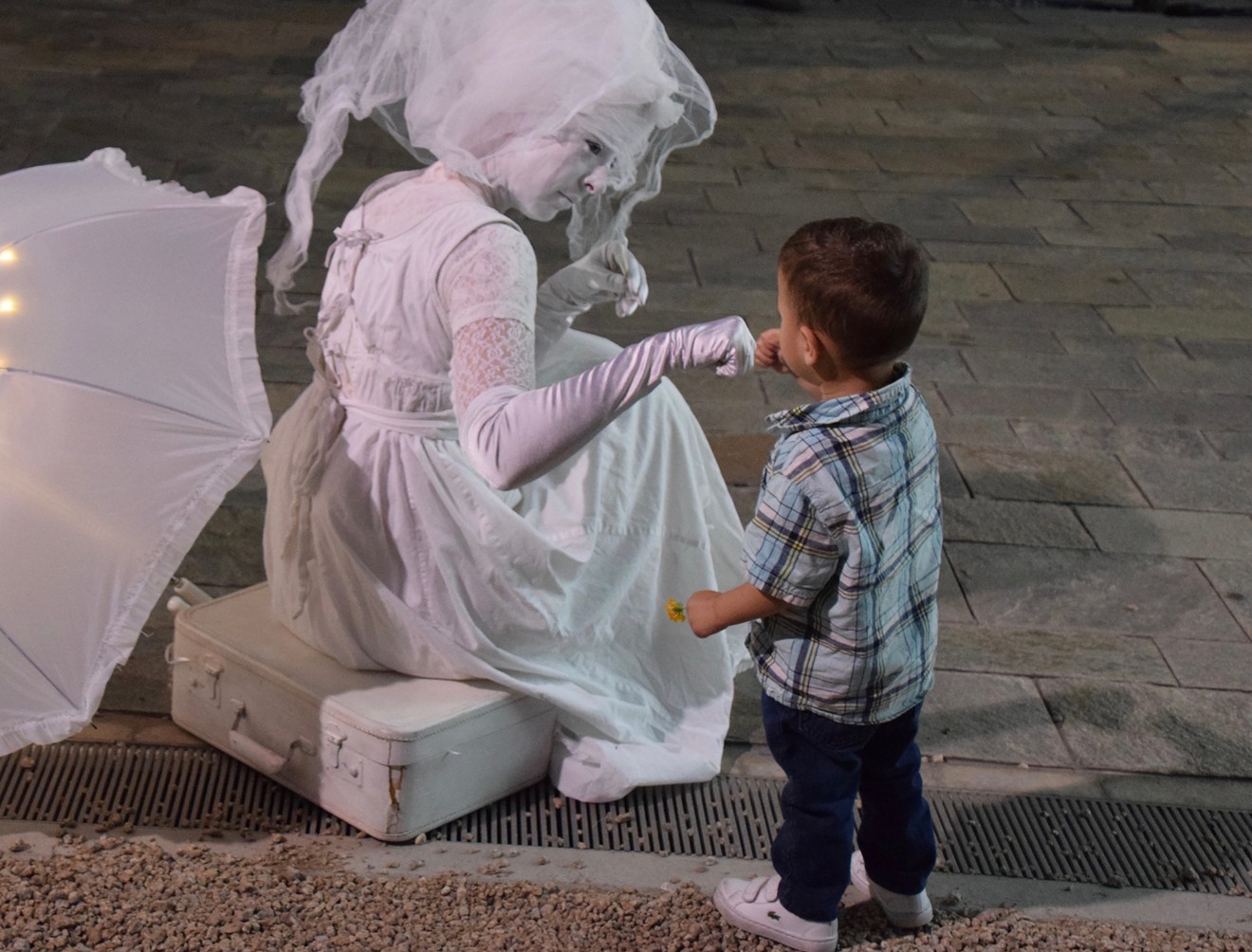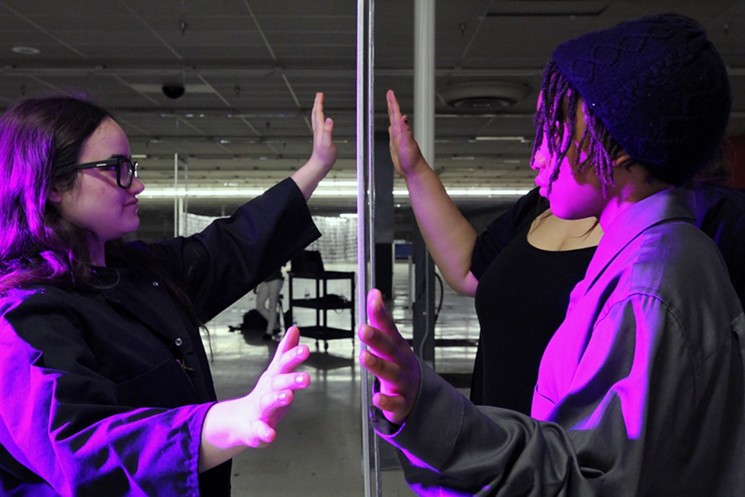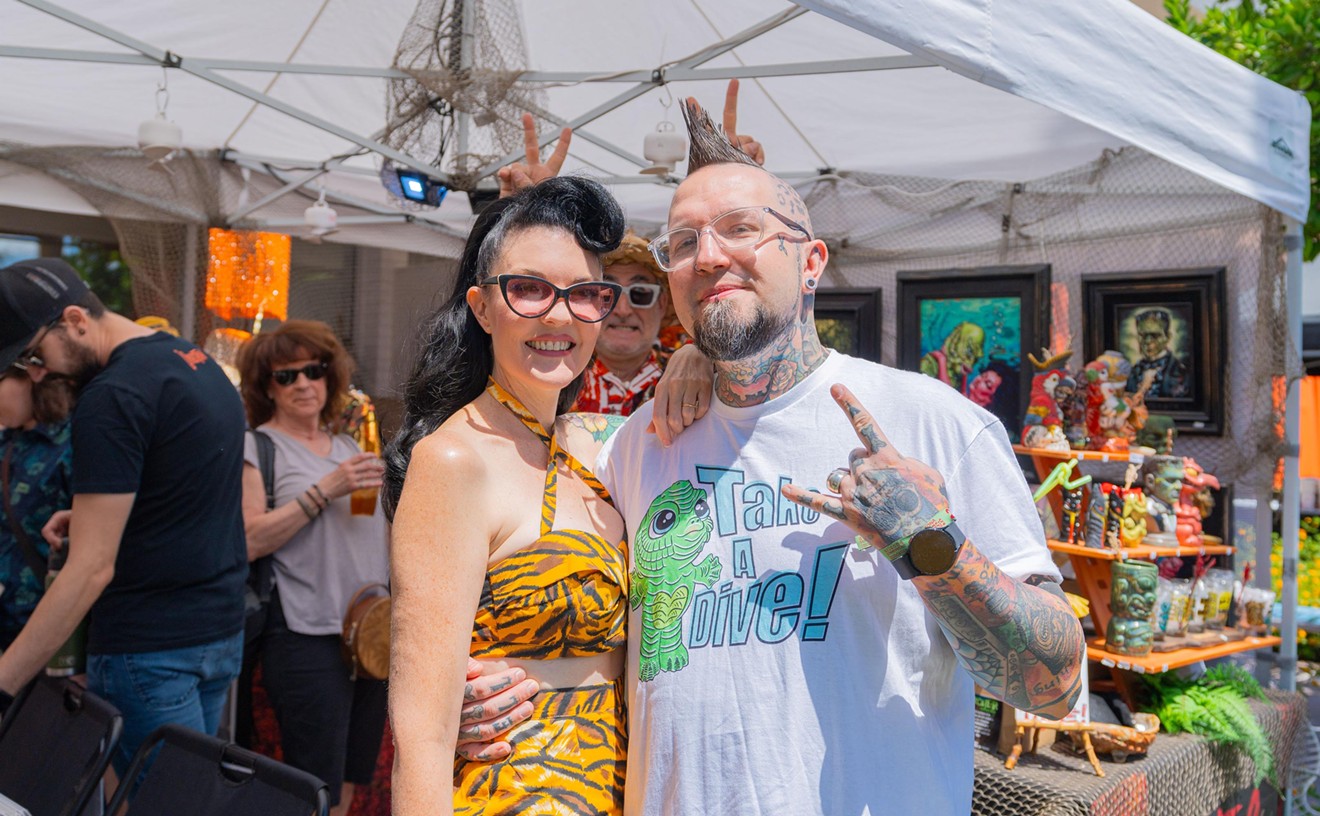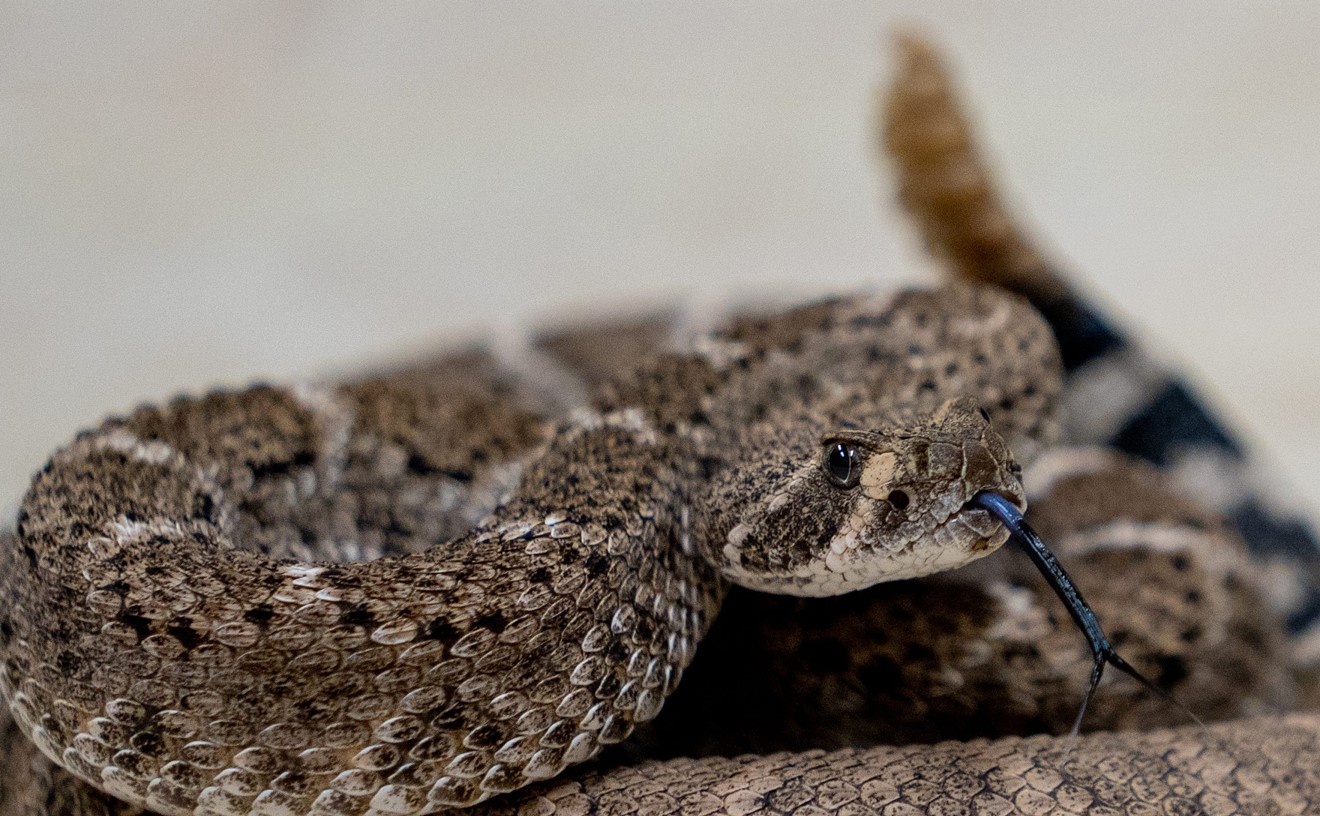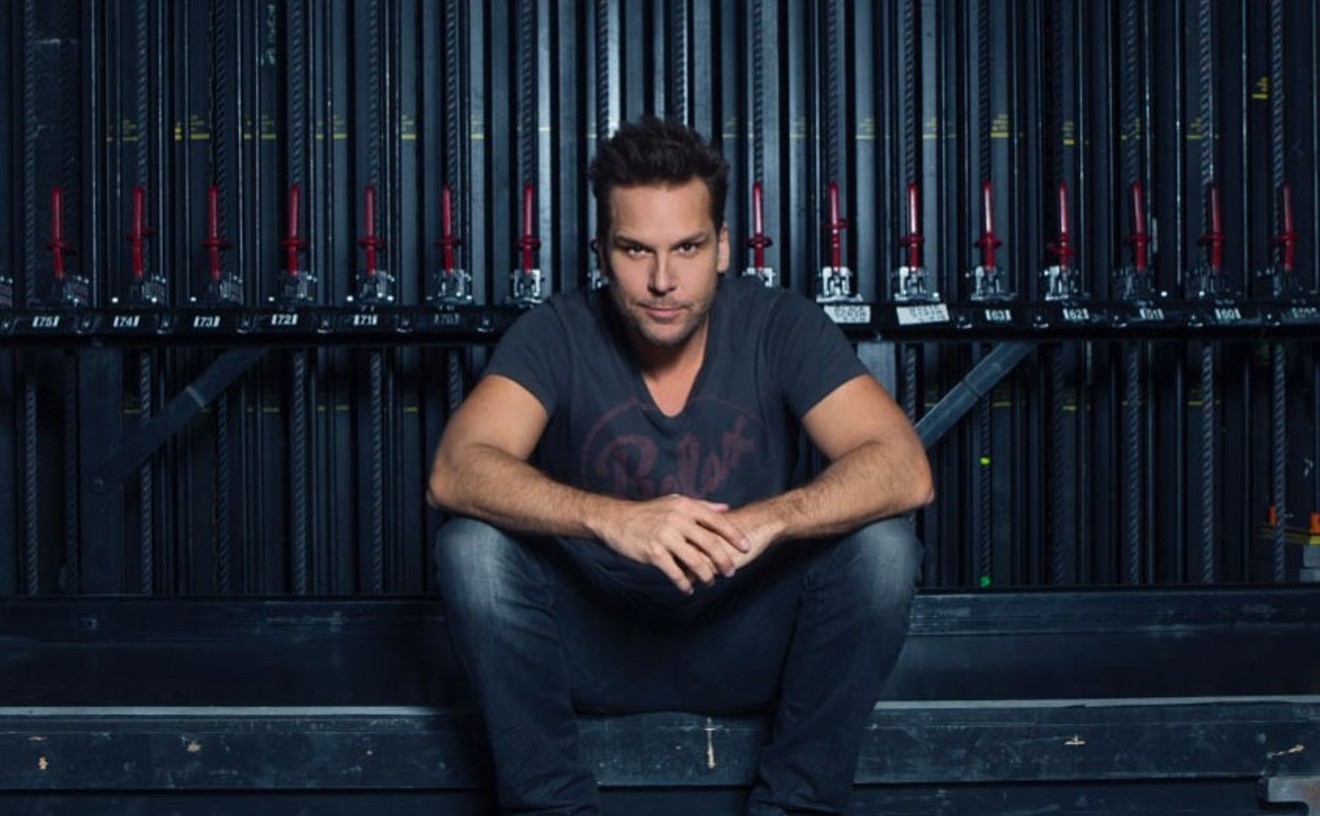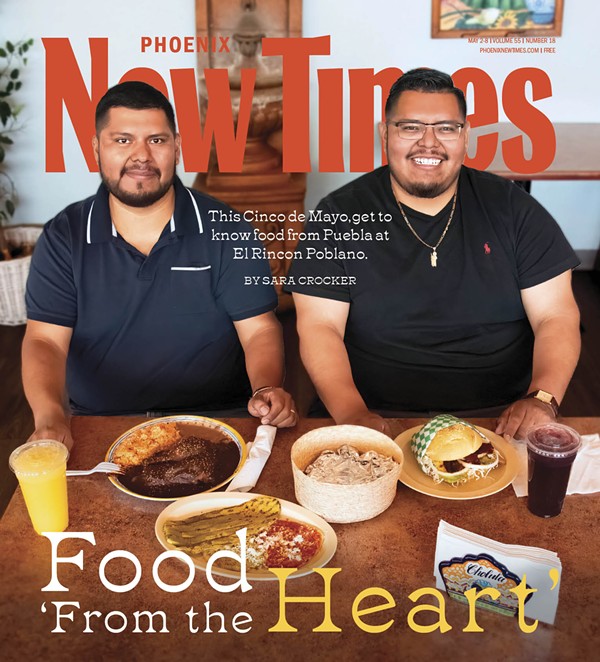Artists have taken a big hit since mid-March, losing significant income due to canceled events and shuttered venues.
“There’s a lot of despair and fear out there,” says Jaime Dempsey, who heads the Arizona Commission on the Arts. “Without people being able to gather and venues being able to open, artists are finding it very difficult to find any capacity to do their jobs.”
Arts and cultural production accounts for more than 90,000 jobs in Arizona, according to the U.S. Bureau of Economic Analysis. Even so, Dempsey says the numbers are much higher when you factor in gig workers.
“Their capacity to work has been completely pulled out from under them,” she says. “They have families, and bills to pay, and mortgages or rent like anybody else.”
Arts organizations are struggling, too. “We haven’t seen any permanent closures yet,” Dempsey says, “but I think it’s unfortunately possible.”
It’s one reason arts advocates are paying careful attention to City Council meetings, where discussions include the budget for fiscal year 2020/21 (which begins on July 1). The Council asked every department to submit a list of possible cuts totaling up to 25 percent of its own budget, but what gets cut remains to be seen.
There’s additional money at stake, as the council debates how to allocate $293 million in CARES Act funding from the federal government, which is designed to mitigate the impact of COVID-19. During a May 5 meeting, council members approved $2 million in CARES Act funding for arts and culture while planning to discuss details during an upcoming meeting.
In some cases, creatives will be eligible to apply for CARES Act-funded grants designed to help micro-businesses and sole proprietors. Regina Nixon, who heads Phoenix Conservatory of Music, spoke in support of CARES Act funding for creatives during the May 6 meeting, noting that COVID-19 has led to significant staff cuts and lost revenue in the arts and culture community.
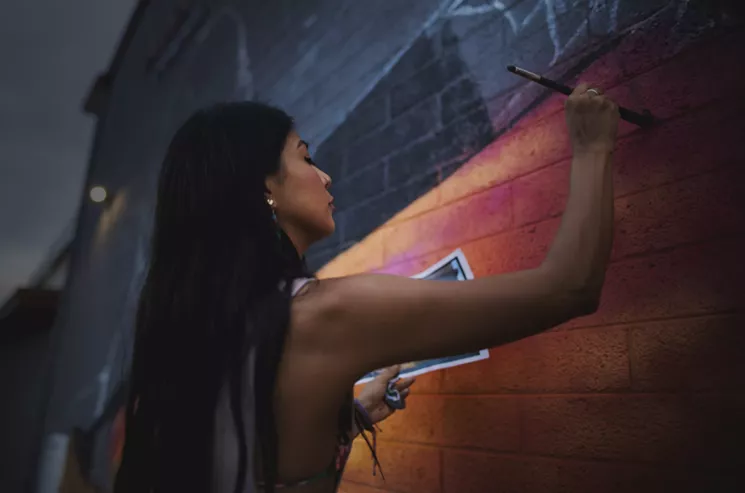
Still shot from the film La Morena, which shows the artist painting a Phoenix mural.
Mango Skies Films
“These applicants documented a minimum of $1.5 million in canceled contracts from March to June alone,” she told the council. “The true income loss is likely five to 10 times greater, given the fact that these artists were only asked to substantiate immediate lost income up to $1,500.”
More statistics will emerge in the coming months, but the Alliance of Arizona Nonprofits has already reported early COVID-19 impacts based on information submitted by 43 organizations. Collectively, they lost $2.2 million in revenue as of May 6, and they expect to lose $6.4 million by the end of the fiscal year.
These groups are reporting other COVID-19 impacts, from decreasing volunteers to increasing expenses. All total, they're applied for $2.2 million in Paycheck Protection Program funding, and just over half have been approved to date. About 40 percent have applied for Economic Injury Disaster Loans, but only one-third of those have been approved so far.
Meanwhile, Arizona cities, towns, and counties are faced with deciding whether and how to support individual artists, creative businesses, and cultural organizations.
Their decisions will likely impact Arizona’s creative landscape for years to come, with repercussions for the broader economy. That’s because arts and cultural production contributes nearly $9 billion to Arizona’s economy, according to the U.S. Bureau of Economic Analysis, which also says the sector accounts for 3.1 percent of the state’s economy.
“We’re just trying to keep the arts whole,” says Joseph Benesh, who heads Arizona Citizens for the Arts. He’s hoping the Arizona legislature will revise its "skinny" FY 2020/21 budget passed earlier this year, which didn’t include the $2 million in arts funding requested by Arizona Commission on the Arts. Typically, the commission uses state dollars to support hundreds of artists through grants. “That money represents real jobs,” he says.
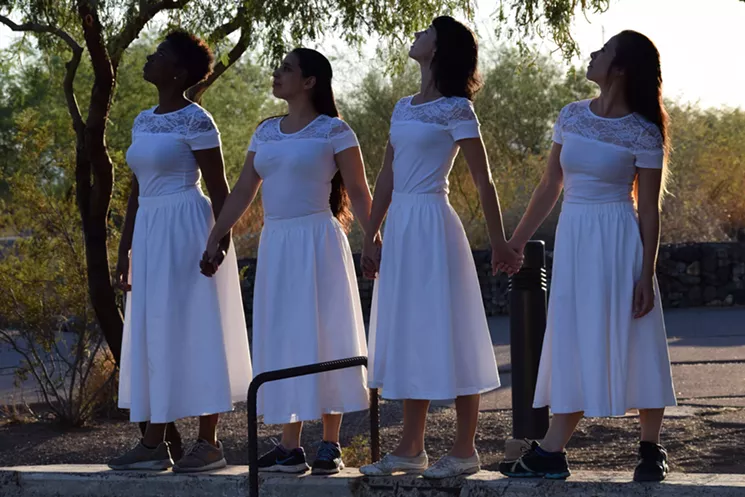
Recalling Liliana Gomez choreography performed at the Rio Salado Habitat Restoration Area.
Lynn Trimble
Even as COVID-19 continues to devastate the arts community, Dempsey is confident that creatives will play an essential role in helping society move forward. “Artists have always led the way out of crisis, along with other small business owners and creatives,” she says. “We are going to need to harness all of that creative power to reimagine and rebuild our neighborhoods and communities.”

